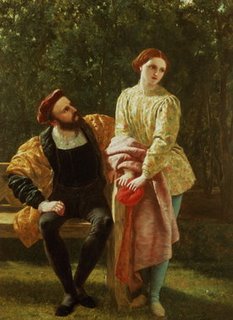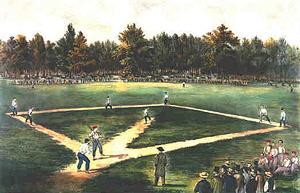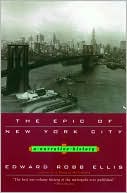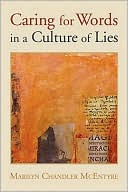shakespeare and baseball
I'm updating because I did promise to try to be more regular about posting and already I'm beginning to slip back into my old habits. Quite sorry about that.
School is screeching to a halt as Thanksgiving break looms up in front of nearly all of us students. I have several math lessons to finish up this Friday, but I have already made my brief farewells to literature and greatbooks and have only a chemistry test to look forward to on Monday. As much as I enjoy school, breaks are always greeted with relieved sighs.

Yesterday, my friend approached me, carrying a large volume under one arm and greeting me with an excited, "I have something to show you, Nicole!" Naturally, upon noticing the immensity of the volume, my curiosity was piqued. It turned out to be a collection of Shakespeare plays, poems, and sonnets. I suppose I need not elucidate the fact that my friend is greatly obsessed with Shakespeare. We spent some time poring over the book, chatting about Shakespeare, showing each other our favorite sonnets (or rather she showed me her favorite sonnets), and talking about plays.
Her new favorite play is Twelfth Night. And after a little while I fell upon her true purpose of showing me the volume. She wanted to put on a Shakespeare play. Not surprisingly, I was rather skeptical at first--I am a rather cautious person. But after a while she convinced me; she has a way of doing that.
And after much deliberation, yes, we chose Twelfth Night. Eagerly she told me she would edit and condense the text, simply because we wouldn't have enough people to perform every part (though hopefully, we will have at least nine, including ourselves). But now everything else must be figured out and worked through--such as, when, where, and how we will perform it. And, even though I'm still a bit skeptical, it looks like it will be fun and I'm hoping that everything works out. I'll keep you all posted on how we progress.
And this is for Emily...
Because she wrote me a simply wonderful post over at her blog:
I thought you would like these. They're from The Old Ball Game: How John McGraw, Christy Mathewson, and the New York Giants Created Modern Baseball by Frank DeFord. (I probably just scared away quite a number of my readers who are anti-baseball, haha). Anyhow, I'm almost finished with the book--hopefully will finish it today. I think you would enjoy it.
And here are those quotes:
in defense of baseball vs. football
Moreover, at a time when most Americans labored at long, enervating hours, six days a week of ten-hour workdays, it helped, too, that baseball was not so physically demanding as the back-and-forth team sports. It is certainly no coincidence that at this time, American football, a mean grueling diversion, was a game played for the most part--and at the highest level of proficiency--by college boys who otherwise were lifting nothing heavier than textbooks. Indeed, the sport was dominated by the wealthiest young gentleman of all, from the Ivy League. These young gallants not only had the energy to engage in such a demanding activity, but they also could use football to show off, proving that they were every bit as tough as the working classes. Thus, while it is ironic, it is perfectly understandable why baseball, the softer (and, allegedly, more intellectual) game, became a professional entertainment while football, which is so much more gladiatorial, remained essentially an amateur distraction, played primarily by students, for many more years.
on why it's the national pastime
Of course, all the cultural analyzing aside, the games that a people favor are those that they find the most fun. But baseball certainly did possess certain ingredients that had made it what everybody called it then: the American national sport. First of all, it was a team game, requiring that "prompt and easy co-operation muscularly." As the Baltimore Morning Herald rhapsodized: "The fin de siecle players must possess a high order of brains, must be of correct habits, have plenty of ambition and be possessed of a certain docility and evenness of temperament such as will insure proper discipline and the frictionless working together of the whole team."
a king kelly anecdote [you probably have heard it, but I thought it was funny :)]
The King did slide. He invented the hook slide. He could hit, too--.308 lifetime. He also was famous for ducking across the infield when the sole umpire's attention was diverted, going from first to third diagonally. Once, when he was sitting out a game with a hangover, a pop foul headed near the Beaneater bench. Seeing that the catcher could not reach the ball, Kelly stood up, screamed "Kelly now catching for Boston," and caught the ball. The startled umpire had to allow the ploy, for there had been nothing in the rule book to anticipate such an instant substitution (although a new rule was quickly inserted to close the King's loophole).
tom murphy, groundskeeper, and the baltimore chop
Working with McGraw and the others, out in front of the plate he mixed dirt with a clay burnt hard. The Orioles would then swing down on the pitch so that the batted ball would hit the concrete-like ground and carom high into the air. By the time the ball came down, the batter would be on first. To this day, that is called the "Baltimore chop." Murphy also doctored the foul lines between home plate and first or third, slanting them, so that bunts would stay fair. To help the speedy young Birds, the path to first base was canted slightly downhill. Since it was common for pitchers then to reach down off the mound for some dirt to soil their sweaty hands, Murphy larded the dirt in that area with soap chips. Opposing pitchers would suddenly find the spheroid mysteriously slipping from their grasp.
keeler's kingdom
Keeler's right-field bailiwick was the wild kingdom. The field out there sloped down to the fence, so that Wee Willie, playing deep, could sometimes barely be seen from home plate. He negotiated the territory in damp, ankle-deep weeds and grass, where it was possible for him to hide extra balls that could be retrieved and tossed in should the legitimate ball in play get beyond his grasp.
matty
There are tales that umpires would surreptitiously look to Matty [Mathewson] on a close play, to get his opinion--a shake or a nod of the head--knowing that he would never call it dishonestly, even to benefit his own team. For example, it has been told in diamond scripture that one time when he slid home, he kicked up so much dust the umpire was blinded, so the trusting arbiter simply turned to Mathewson and asked him for the call. "He got me," Mathewson replied straightaway, and only then did the relieved umpire cry, "Out!"
"Why would you admit that?" asked the bewildered catcher.
"Because I am a church elder."
another trick
Since only one umpire worked a game, it was possible, simply, to get away with more shenanigans. McGraw's favorite trick, when he was playing third and a runner tagged up there, was to gently hook a finger into the runner's belt. When the fly was caught and the runner started to light out for home, McGraw would be literally holding him to the bag--but in such a fashion that the umpire couldn't see.
I have a bunch more, but I think I'll stop there--maybe I'll type up more when I finish the book. :) Thanks for your wonderful post, Emily! I enjoyed it immensely.
I hope you all have a great day!
Labels: baseball
Posted by Nicole Bianchi at 2:29 PM
|
![]()



 This is life seen through the eyes of a writer. A blog that critically examines literature, music, and film. NB, initials which coincidently coinside with the Latin words "nota bene" (mark well), belong to the blog poster, a bibliophile who likes to haunt libraries and book stores, talk about all things bookish, and ramble at any length on things regarding literature. Many of the articles posted here were written as essays for high school and college.
This is life seen through the eyes of a writer. A blog that critically examines literature, music, and film. NB, initials which coincidently coinside with the Latin words "nota bene" (mark well), belong to the blog poster, a bibliophile who likes to haunt libraries and book stores, talk about all things bookish, and ramble at any length on things regarding literature. Many of the articles posted here were written as essays for high school and college.





